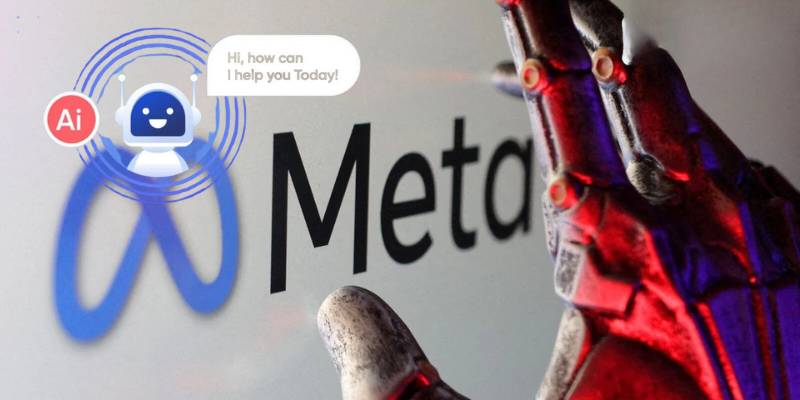Starting December 16, 2025, Meta will turn your conversations with its AI chatbot into a new signal for ads and content across Facebook and Instagram.
The move marks a major leap in how conversational data is monetized—or weaponized, depending on who you ask.
According to reports, chats about hiking could lead to hiking boot ads. Conversations on recipes might encourage cooking gear promotions. And yet, Meta claims topics like religion, politics, health, sexual orientation, and race will be off-limits for ad targeting.
Users in the U.K., South Korea, and the EU will be exempt for now. And those already chatting before the rollout won’t be retroactively targeted. But there is no opt-out for users interacting with Meta AI post-December 16.
This shift was first revealed when the Wall Street Journal reported on Meta’s updated plans to fold AI conversations into its advertising ecosystem.
Chatting for Data: How Meta Plans to Use Your Words
Meta will treat chatbot interactions the same way it treats clicks, likes, and follows—just another layer of behavioral signal.
Christy Harris, Meta’s privacy policy manager, admitted the company is still shaping the first ad products that will rely on this data.
In line with this strategy, Reuters explained how Meta will begin using AI chats to personalize content and ads, describing this move as one of the boldest steps yet in targeted marketing.
Why This Shift Matters (and Makes People Squirm)
This isn’t just another tweak to an algorithm. It’s a litmus test of how intimate AI is allowed to become in our daily lives.
Before, ads stalked us through what we clicked or searched. Now, they might be born from things you whisper to a chatbot.
Worries over “AI snooping” are spreading quickly. While Meta promises exclusions for “sensitive topics,” defining those in practice is messy.
The Verge captured this unease by noting that your private exchanges with Meta AI will soon directly shape the ads and posts in your feeds.
Global and Regulatory Complexities
The rollout won’t look the same everywhere. In Europe and South Korea, stricter privacy laws make Meta tread carefully. GDPR, for instance, demands explicit user consent before processing personal data in this way.
For U.S. users, however, it’s a different story. Once you engage with the chatbot after December 16, those conversations will influence what you see—even if you tweak ad preference settings.
TechRadar underscored that for most people there’s effectively no opt-out mechanism once the change takes effect.
Context: Meta’s Broader AI Ad Strategy
Meta’s ambitions extend beyond chatbot targeting. It has been testing fully automated ad creation, where businesses feed the system a product and budget, and AI produces visuals, copy, and targeting strategies.
The direction is clear: AI is meant to run the ad stack end-to-end. Advantage+ tools already hint at this future, delivering automated variations on creatives and audience matching.
If conversational input becomes another gear in the machine, Meta could be on the verge of building one of the most complete ad engines in existence.
The Human Side: What Users Should Know
So what does this mean for everyday people? Put simply: don’t treat Meta AI like a diary. Talking about hiking might seem harmless, but anything you say could end up reshaping your online experience in ways you don’t expect.
Practical steps right now:
- Be mindful of what you share with AI tools.
- Revisit ad settings—even though they won’t stop conversational targeting, they still influence other signals.
- Watch for policy updates; Meta says users will begin receiving notices about the changes starting October 7.
Opinion: A Big Red Flag—or Just Innovation?
Here’s where I land: this is both impressive and unsettling. Meta is banking on conversational AI being the richest behavioral dataset available. But it edges into territory that feels too close to home.
The danger isn’t just privacy; it’s erosion of trust. If users feel like every digital conversation is fuel for ads, they may pull back from using these tools altogether. That would hurt both the technology’s promise and the people who rely on it.
The bottom line? This could be innovation that rewrites the ad playbook—or it could become a cautionary tale about what happens when a company prioritizes monetization over transparency.

